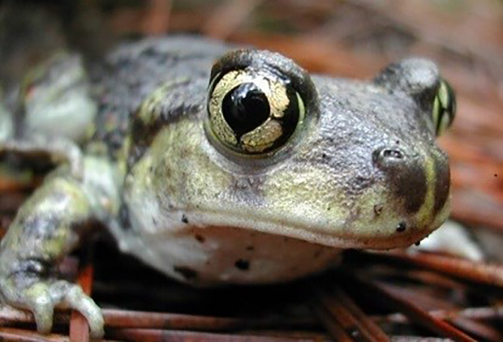
Saturday, May 25, 2019
CRU hosts a conversation on Thursday
|
||||||||||||||||||||||||||||||||||||||||||||||||
The past is prologue
Your internet data is rotting
Paul Royster, University of Nebraska-Lincoln
 Many MySpace users were dismayed to discover earlier this year that the social media platform lost 50 million files uploaded between 2003 and 2015.
Many MySpace users were dismayed to discover earlier this year that the social media platform lost 50 million files uploaded between 2003 and 2015.
The failure of MySpace to care for and preserve its users’ content should serve as a reminder that relying on free third-party services can be risky.
MySpace has probably preserved the users’ data; it just lost their content. The data was valuable to MySpace; the users’ content less so.
Paul Royster, University of Nebraska-Lincoln
 Many MySpace users were dismayed to discover earlier this year that the social media platform lost 50 million files uploaded between 2003 and 2015.
Many MySpace users were dismayed to discover earlier this year that the social media platform lost 50 million files uploaded between 2003 and 2015. The failure of MySpace to care for and preserve its users’ content should serve as a reminder that relying on free third-party services can be risky.
MySpace has probably preserved the users’ data; it just lost their content. The data was valuable to MySpace; the users’ content less so.
One shot for life
New
approach by Stanford researchers could lead to a lifetime flu vaccine
BY
AMY ADAMS
 If the virus that causes
flu were an ice cream cone, then the yearly vaccine teaches the immune system
to recognize just the scoop – chocolate one year, strawberry the next. As the
virus changes each year, so too must the vaccine.
If the virus that causes
flu were an ice cream cone, then the yearly vaccine teaches the immune system
to recognize just the scoop – chocolate one year, strawberry the next. As the
virus changes each year, so too must the vaccine.
A new approach that
teaches the body to recognize the cone portion of the virus – which stays the
same year-to-year – could shake up that yearly vaccination ritual and protect
people against pandemic flu like the one that killed 40 to 50 million people in
1918.
The team working on this new approach, led by Stanford biochemist Peter Kim, has shown early signs that their technique works in lab animals. They warn that they still need to make their vaccine more specific and show it works in much larger studies before testing it in people.
The team working on this new approach, led by Stanford biochemist Peter Kim, has shown early signs that their technique works in lab animals. They warn that they still need to make their vaccine more specific and show it works in much larger studies before testing it in people.
Up next – Trial in Monsanto’s hometown set for August after $2 billion Roundup cancer verdict
"The
things that have gone on here, I want St. Louis juries to hear thisstuff."
 After
three stunning courtroom losses in California, the legal battle over the safety
of Monsanto's top-selling Roundup herbicide is headed for the company's
hometown, where corporate officials can be forced to appear on the witness
stand, and legal precedence shows a history of anti-corporate judgments.
After
three stunning courtroom losses in California, the legal battle over the safety
of Monsanto's top-selling Roundup herbicide is headed for the company's
hometown, where corporate officials can be forced to appear on the witness
stand, and legal precedence shows a history of anti-corporate judgments.
Sharlean
Gordon, a cancer-stricken woman in her 50s, is the next plaintiff currently set
for trial. Gordon v. Monsanto starts
Aug. 19 in St. Louis County Circuit Court, located just a few miles from the
St. Louis, Missouri-area campus that was the company's longtime world
headquarters until Bayer bought Monsanto last June.
The case was filed in July 2017 on behalf of more than 75 plaintiffs and Gordon is the first of that group to go to trial.
The case was filed in July 2017 on behalf of more than 75 plaintiffs and Gordon is the first of that group to go to trial.
According
to the complaint, Gordon purchased and used Roundup for at least 15 continuous
years through approximately 2017 and was diagnosed with a form of non-Hodgkin
lymphoma in 2006. Gordon has gone through two stem cell transplants and spent a
year in a nursing home at one point in her treatment.
Friday, May 24, 2019
Not the way to mark Memorial Day
Pardoning war criminals is a bad way to honor Memorial Day
 How are you spending
Memorial Day? Ordinary people may attend parades, host cookouts, or take the
long weekend to visit loved ones.
How are you spending
Memorial Day? Ordinary people may attend parades, host cookouts, or take the
long weekend to visit loved ones.
Donald Trump, on the
other hand, may pardon a few war criminals.
The president
recently requested the files of several accused
and convicted U.S. war criminals, a possible step toward expedited pardons for
individuals who’ve done unspeakable things.
There’s SEAL chief
Edward Gallagher, who senselessly shot to death a teenage girl and an elderly man
in Iraq. Gallagher also brutally stabbed a wounded 15-year-old to death — and
then posed for photos with the body, which he texted to friends.
Trump also requested
the files of Nicholas Slatten, a Blackwater contractor convicted of shooting
dozens of Iraqi civilians in the notorious 2007 Nisour Square massacre, and of
Mathew Golsteyn, who confessed to murdering an unarmed Afghan captive U.S.
soldiers had released.
Myths about gossip busted
Study explores nuances
of who gossips, and what they gossip about
University of
California - Riverside
 A new UC Riverside
study asserts that women don't engage in "tear-down" gossip any more
than men, and lower income people don't gossip more than their more well-to-do
counterparts.
A new UC Riverside
study asserts that women don't engage in "tear-down" gossip any more
than men, and lower income people don't gossip more than their more well-to-do
counterparts. It also holds younger people are more likely to gossip negatively than their older counterparts.
It's the first-ever study to dig deep into who gossips the most, what topics they gossip about, and how often people gossip -- 52 minutes a day on average.
Plastic pollutes. Period.
From making it to managing it, plastic is a major contributor to climate change
 Plastic is polluting oceans, freshwater lakes and rivers, food and
us — but it's also a major contributor to global climate change, warns a new
report.
Plastic is polluting oceans, freshwater lakes and rivers, food and
us — but it's also a major contributor to global climate change, warns a new
report.
Scientists, policymakers and consumers are increasingly aware of
the threat plastic pollution poses to oceans and water, wildlife, food and
people.
However, often lost in calculating plastics' environmental harm is its contributions to climate change.
However, often lost in calculating plastics' environmental harm is its contributions to climate change.
"I don't feel the petrochemical buildout is being considered
as part of climate change discussions at any level in our state
[Pennsylvania]," Michele Fetting, program manager at the Breathe Project,
a coalition of 24 environmental organizations, told EHN.
Petrochemical facilities, such as cracker plants, take fuels like
natural gas and convert them to chemical products, which are most often used to
make plastics. Shell is building a massive petrochemical complex in Beaver
County, Pennsylvania, as part of a broader effort to put such facilities in
multiple spots along the Ohio River Valley.
Why Did Deutsche Bank Keep Lending to Donald Trump?
Lending to a borrower who defaults on loans raises money laundering suspicions
By Heather Vogell, ProPublica, and Andrea Bernstein, WNYC
 Whispers of money laundering have swirled around Donald Trump’s businesses for years.
Whispers of money laundering have swirled around Donald Trump’s businesses for years.
One of his casinos, for example, was fined $10 million for not trying hard enough to prevent such machinations.
Investors with shady financial histories sometimes popped up in his foreign ventures. And on Sunday, The New York Times reported that anti-money-laundering specialists at Deutsche Bank internally flagged multiple transactions by Trump companies as suspicious. (A spokesperson for the Trump Organization called the article “absolute nonsense.”)
 The remarkably troubled recent history of Deutsche Bank, its past money-laundering woes — and the bank’s striking relationship with Trump — are the subjects of this week’s episode of the “Trump, Inc.” podcast. Listen to the episode.
The remarkably troubled recent history of Deutsche Bank, its past money-laundering woes — and the bank’s striking relationship with Trump — are the subjects of this week’s episode of the “Trump, Inc.” podcast. Listen to the episode.
The German bank loaned a cumulative total of around $2.5 billion to Trump projects over the past two decades, and the bank continued writing him nine-figure checks even after he defaulted on a $640 million obligation and sued the bank, blaming it for his failure to pay back the debt.
“Trump, Inc.” isn’t the only one examining the president’s relationship with the bank. Congressional investigators have gone to court seeking the kind of detailed — and usually secret — banking records that could reveal potential misdeeds related to the president’s businesses, according to recent filings by two congressional committees.
By Heather Vogell, ProPublica, and Andrea Bernstein, WNYC
One of his casinos, for example, was fined $10 million for not trying hard enough to prevent such machinations.
Investors with shady financial histories sometimes popped up in his foreign ventures. And on Sunday, The New York Times reported that anti-money-laundering specialists at Deutsche Bank internally flagged multiple transactions by Trump companies as suspicious. (A spokesperson for the Trump Organization called the article “absolute nonsense.”)
 The remarkably troubled recent history of Deutsche Bank, its past money-laundering woes — and the bank’s striking relationship with Trump — are the subjects of this week’s episode of the “Trump, Inc.” podcast. Listen to the episode.
The remarkably troubled recent history of Deutsche Bank, its past money-laundering woes — and the bank’s striking relationship with Trump — are the subjects of this week’s episode of the “Trump, Inc.” podcast. Listen to the episode.The German bank loaned a cumulative total of around $2.5 billion to Trump projects over the past two decades, and the bank continued writing him nine-figure checks even after he defaulted on a $640 million obligation and sued the bank, blaming it for his failure to pay back the debt.
“Trump, Inc.” isn’t the only one examining the president’s relationship with the bank. Congressional investigators have gone to court seeking the kind of detailed — and usually secret — banking records that could reveal potential misdeeds related to the president’s businesses, according to recent filings by two congressional committees.
Thursday, May 23, 2019
Call for help from the Exes
The Curse of Donald Trump
 I
know that everyone’s talking about the final episodes of HBO’s Game of
Thrones and some are comparing our current woes to the battle for the Iron
Throne of the Seven Kingdoms.
I
know that everyone’s talking about the final episodes of HBO’s Game of
Thrones and some are comparing our current woes to the battle for the Iron
Throne of the Seven Kingdoms.
Hell,
even our hopeless tinpot dictator of a president has tweeted GoT memes and in
his cabinet room admired a poster of himself that promoted the economic
punishment of Iran, announcing “Sanctions Are Coming."
Apparently, Trump didn’t care that to normal people the Game of Thrones phrase from whence it came, “Winter Is Coming,” is about a cold and bitter threat to all of civilization’s survival. It was a picture of him and that’s all that mattered. HBO and series cast members have let their displeasure be known.
Apparently, Trump didn’t care that to normal people the Game of Thrones phrase from whence it came, “Winter Is Coming,” is about a cold and bitter threat to all of civilization’s survival. It was a picture of him and that’s all that mattered. HBO and series cast members have let their displeasure be known.
But
I keep thinking instead about another fantasy tale, Tolkien’s Lord of the
Rings, and the decades-long spell cast over good King Theodon of Rohan – the
evil magic that clouds his judgment until the spell is broken by Gandalf the
wizard and Theodon becomes a hero again.
Because,
let’s face it, a spell or curse sometimes seems the only reasonable explanation
for why so many in the echelons of government and politics, people who should
know better, have fallen under the thrall of our snake oil salesman-in-chief.
I’m reminded of a TV show I worked on years ago in which that mentalist The Amazing Kreskin took a bunch of otherwise rational people to a New Jersey field and convinced them that flying saucers were hovering overhead.
I’m reminded of a TV show I worked on years ago in which that mentalist The Amazing Kreskin took a bunch of otherwise rational people to a New Jersey field and convinced them that flying saucers were hovering overhead.
In
particular, the obsequious bootlicking that accompanies the illusion is a
national embarrassment, more befitting the toadying of vassals to a Game
of Thrones-like medieval king than men and women working for the president of
an allegedly independent republic.
Remember
that inaugural meeting of Trump’s full cabinet in
June 2017? First, he announced that in his first 143 days, "Never has there been a
president… with few exceptions...who's passed more legislation, who's done more
things than I have." A complete and total lie, but what else is new?
He then went around the room and had every secretary say how wonderful he was. Even soon-to-be-booted chief of staff Reince Preibus chimed in: "We thank you for the opportunity and blessing to serve your agenda." Please, sir, I'd like another. It’s been nothing but downhill since.
He then went around the room and had every secretary say how wonderful he was. Even soon-to-be-booted chief of staff Reince Preibus chimed in: "We thank you for the opportunity and blessing to serve your agenda." Please, sir, I'd like another. It’s been nothing but downhill since.
Beyond sorcery, there is, of course, a
rational explanation. What they all quickly realized and the rest of us have
come to know too well—including world leaders and despots—is that the only
thing to which this president responds positively is abject flattery, the more
outlandish and overblown the better.
Saving a rare Richmond toad
By TODD McLEISH/ecoRI
News contributor
The state’s rarest toad is round and
short-legged with bulging eyes and a spade-shaped protrusion on its hind feet
that enable them to corkscrew themselves into the ground, where they stay moist
and cool and avoid predators.
But there is just one population of
eastern spadefoot toads left in Rhode Island, here in Richmond, and they
haven’t reproduced since 2014.
Scott Buchanan, a herpetologist with the Rhode Island Department of Environmental Management (DEM), called the toads “the best example of a species that, as far as we know, is on the verge of disappearing from Rhode Island.”
Scott Buchanan, a herpetologist with the Rhode Island Department of Environmental Management (DEM), called the toads “the best example of a species that, as far as we know, is on the verge of disappearing from Rhode Island.”
University of Rhode Island
herpetologist Nancy Karraker and research associate Bill Buffum are trying to
forestall that possibility by building additional wetland habitat for them in
several communities around the state.
The first of these manmade breeding
pools were built May 13-15 on property owned by the Richmond Rural Preservation Land
Trust.
“Spadefoot toads breed in the most
ephemeral of vernal pools,” Karraker said. “They use what most would call a
puddle in the middle of an agricultural field, with no forest canopy cover, and
they’re filled by torrential storms that occur in May and June. Those big
storms that produce thunder and lightning and an inch or more of rain in 24
hours brings the toads up to breed.”
When these conditions occur, the
toads lay their eggs within a day, the eggs hatch into tadpoles a day or two
later, and they complete their metamorphosis into toadlets and hop away into
the forest three weeks after that, she said.
Unfortunately, the proper conditions
haven’t occurred at the right time to inspire the toads to emerge and breed in
the past five years.
Subscribe to:
Posts (Atom)





